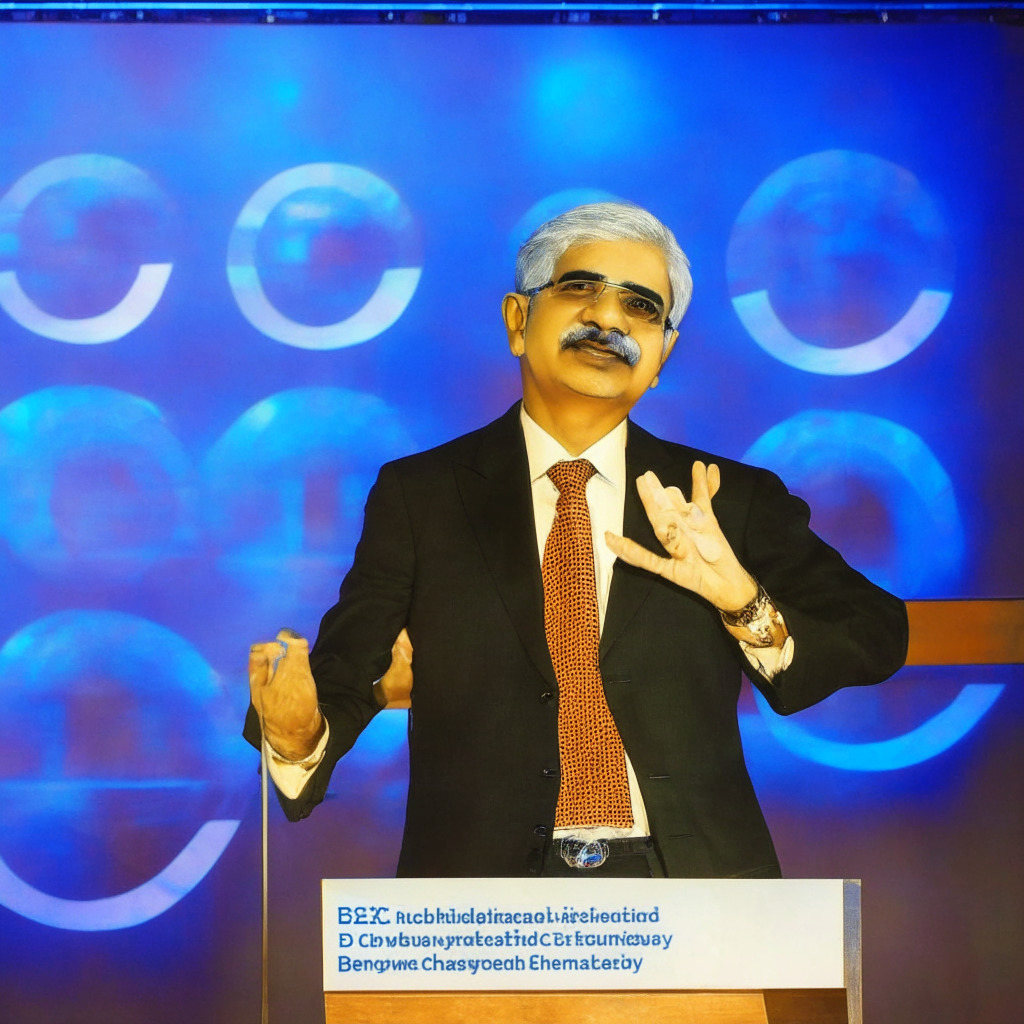The article discusses BCH’s struggle to cross the symbolic value of $200, indicating the lack of strength to move beyond key resistance levels. Coupled with the possibility of BCH falling back to $160, this could also create an opportunity for buyers if the market resumes the bull run. Conversely, if BCH fails to gain support at $160, a drop into the early $100s might occur. The newly to be launched $WSM token is also highlighted for its potential.
Search Results for: GHO
Ripple Migration: A Wake-Up Call on Regulatory Clarity in the Crypto Industry
Ripple CEO Brad Garlinghouse revealed that 80% of the company’s recruitments in 2021 will be in nations with clear regulatory landscapes like Singapore, Hong Kong, U.K., and Dubai, due to the ongoing legal frost with the U.S. SEC. This underscores how uncertain regulations can impact global industry growth.
U.S. Regulatory Hurdles: Driving Crypto Startups Towards Friendlier Shores?
“Ripple’s CEO, Brad Garlinghouse, argues that the U.S. is the worst country for crypto start-ups due to its hesitance towards digital asset innovation. He highlights the UK, Singapore, UAE, and Switzerland as nations nurturing such innovation. Aggressive lawsuits by SEC and CFTC complicate the implementation of crypto regulations in the U.S., possibly inducing a mass exodus of blockchain startups to friendlier jurisdictions.”
Crypto Cold War: Navigating Regulations and Market Opportunities in the United States
Ripple’s CEO, Brad Garlinghouse, asserts the U.S. is one of the worst places for starting a crypto business due to regulatory issues. Despite legal victories, regulatory clarity remains elusive, leading Ripple to consider countries with more crypto-friendly policies. This invariably poses a dilemma for crypto businesses when regulations contradict market opportunities.
Future of Crypto Regulation: Senator Sherrod Brown’s Stand and Potential Impacts on the Industry
Senator Sherrod Brown’s stern views on crypto industry as riddled with deceit and exploitation is affecting the future of crypto regulation in the U.S. Brown directs the Senate Banking Committee, highlighting troubling aspects like inadequate disclosure, interest conflicts, and high-risk bets in the industry. Without Brown’s approval, comprehensive crypto market oversight seems unlikely.
Unraveling the Regulatory and Ethical Quagmires: Navigating through the Crypto Landscape
A U.S. federal judge delayed a sentencing hearing for radio host Ian Freeman, who allegedly created an illegal Bitcoin exchange used by scammers. Meanwhile, the DeFi Education Fund contests a patent claim by tech company True Return Systems. Also, DigiFT’s dETH0924 provides up to 4% APR, boosting Ethereum’s PoS mechanism, while crypto infrastructure provider Qredo integrated Circle’s USDC stablecoin into its wallet.
Bitcoin’s Rapid Recovery: Is it a Short Squeeze or a Blip on the Chart?
“Bitcoin’s sudden recovery to approximately $26,000 raises questions about the influence of major exchanges. However, without strong bullish catalysts, this resurgence may face resistance. Fears of an altcoin crash emerge as FTX exchange plans to offload an estimated $3.4 billion in altcoins, hinting at a bearish market for this crypto category.”
Bitcoin Volatility Correlation Flips: Predicting Potential Declines Amid FTX and Federal Reserve Concerns
Bitcoin’s price and its 30-day implied volatility have resumed a negative correlation, hinting at expected declines. Rising volatility and falling price indicate a bias for protective measures against price slides. Concerns involve potential liquidations by FTX, monetary restrictions by the Federal Reserve, and fears of global monetary tightening. This shift in volatility trend could impact the broader crypto market.
Asset Disposal Onslaught: Navigating the Imminent Crypto Gale and its Market Impact
“FTX is projected to sell around $3.4 billion worth of crypto assets by the end of 2023, contributing to potential market volatility. Altcoins may be particularly affected, with VC funds also becoming pivotal sellers. This increased volatility, however, may create investment opportunities for those bullish on blockchain’s future.”
Exploring the Probability of Marking Digital Ruble Tokens: A Double-Edged Sword for Russian CBDC
The Russian Central Bank potentially explores “marking” digital ruble tokens to track CBDC transactions, allowing close monitoring of funds usage. This suggests super-traceable tokens could be a reality soon, although there are cautionary notes around the required balance between regulation and autonomy in digital currency.
Google’s Digital Futures Project: A Beacon for Ethical AI or Deflection Strategy?
Google’s Digital Futures Project aims to promote the secure, responsible use of AI through research and collaboration with think tanks and academic institutions. However, skeptics question potential conflicts of interest, highlighting the need for transparency in its operations.
Bitgamo’s Ambitious Expansion: Reshaping the Crypto Landscape Amid Regulatory Challenges
“Bitgamo, a Luxembourg-based crypto to fiat exchange platform, plans to establish 75 cryptocurrency ATMs throughout Europe by 2024. It aims to provide higher rates for crypto assets and offer no-KYC crypto to fiat conversion, promising security, privacy, and a superb user experience. They also aim to redistribute cryptocurrencies to Middle East regions.”
Friend.tech: From Dips to Triumphs – The Decentralized Social Media Platform’s Resurrection
“The once doubted decentralized platform Friend.tech has experienced immense growth recently, with a surge in its Total Locked Value (TVL) reaching $20 million. Despite initial skepticism, it now stands as the third highest revenue-generating decentralized application in the DeFi ecosystem. With active updates and a creator-first approach, this might be the beginning of a sustainable growth journey.”
Internet Access in Federal Jails: A Hurdle or Excuse in Sam Bankman-Fried’s Case?
The defense team of FTX founder, Sam Bankman-Fried, alleges inadequate internet access in federal jail, hindering their case preparation. This has triggered debate on the condition of technological infrastructure within correctional facilities. The DOJ however, maintains that existing internet speeds are sufficient for most review activities.
Cryptocurrency Mining and Environmental Dilemma: Panther Creek Power Plant Under Fire
“Panther Creek Power Plant in Pennsylvania, purchased by Stronghold Digital Mining, has come under criticism for its energy-intensive crypto mining practices. Despite environmental concerns, the plant seeks approval for burning tires to generate energy for crypto mining. The situation highlights the conflict between the high energy demands of crypto mining, environmental preservation, and the search for affordable energy sources.”
Luna Classic vs Wall Street Memes: Analyzing the Potential of Underdog Cryptos
“In the fluctuating world of cryptocurrencies, Luna Classic (LUNC) stands out despite its bearish trend. The coin has fallen below its support zone, suggesting potential decline. However, a bullish breakout could see the price soar. Investors are also attracted to the $WSM token from Wall Street Memes, a coin showing promising growth potential. Though intriguing, these ventures remain high-risk, with potential for total capital loss.”
Navigating the High Seas: Bitcoin’s Voyage Beyond the $26,000 Landmark and Future Challenges
Bitcoin’s impressive performance has seen growth beyond the $26,000 mark, holding a market cap of almost $504.17 billion USD. The current circulation underscores Bitcoin’s unique scarcity with its supply cap at 21 million. The blockchain world offers other cryptocurrencies and ICO projects to observe for 2023. Caution is advised due to the considerable risk and volatility.
Ripple’s Strategic Acquisition of Fortress Trust: Innovation or Defensive Measure?
“Ripple’s strategic acquisition of Fortress Trust bolsters its position in the blockchain markets, adding to its portfolio of over 30 US regulatory licenses. The acquisition could serve dual purposes, expanding services and customer value while also fortifying against unpredictable US regulation.”
Ripple’s Strategic Move: Seizing Ownership of Fortress Trust- Boon or Bane?
“Ripple, a blockchain enterprise, recently acquired Fortress Trust, a trust company specializing in cryptocurrency and Web3 applications. The move expands Ripple’s regulatory licenses in the U.S., aligning it with its goal to become a leading service provider in the evolving blockchain world.”
China’s Crypto Clampdown vs Global Leanings: Divergent Paths in Blockchain Evolution
China continues its crackdown on crypto activities on Weibo, targeting more than 80 influential crypto personalities. Meanwhile, the IMF and FSB released policy recommendations to manage cryptocurrency-associated financial risks. In other developments, the DFINITY Foundation partners with Lugano’s municipality and Unstoppable Domains added .eth domain support to its messaging service.
Decentralized Exchange Brine Fi Secures $16.5M Amid Market Slump: A Game Changer or Mirage?
“Decentralized exchange Brine Fi has secured a $16.5 million investment led by Pantera Capital, despite the recent dip in venture capital for digital assets. Based on Ethereum scaling system StarkWare, Brine Fi offers a non-custodial, decentralized orderbook with privacy for trading positions. Pantera Capital praises its potential for mainstream and institutional adoption in DeFi.”
AI-Generated Song Vies for Grammy: Innovation or Threat to Human Creativity?
An AI-generated song featuring a track of rapper, Drake, is vying for a Grammy nomination. The song, presented by a producer known as “Ghostwriter”, raises questions about the authenticity of AI-generated music and sparks a conversation about the challenges and opportunities of integrating AI in the music industry.
The Unexpected Turn in the Insider Trading Case of former OpenSea Manager Chastain
Former OpenSea manager, Nathaniel Chastain, though appealing his insider trading charges, opted to serve his three-month prison sentence. Using confidential info for personal gain, Chastain’s misconduct highlights contentious boundaries in crypto trading regulation, reflecting on the volatile nature of blockchain technology adoption.
South Korean Crypto Sentiment: Investment or Gambling? Public Perspective & Future Predictions
A recent South Korean survey reveals 80% of respondents view cryptocurrencies more as “gambling” due to lack of asset support, susceptibility to scams, price manipulation fears, and insufficient regulatory supervision. While 6% reported understanding underlying blockchain technology, most demonstrated partial or no comprehension, primarily investing for fun or quick gains.
Crypto Loan Conflict: Genesis Demands $600 Million Payment from Digital Currency Group
Genesis Global Capital has filed lawsuits against Digital Currency Group (DCG) and its international affiliate for alleged unpaid loans exceeding $600 million. Genesis contends that DCG attempted to convert the credit into “Open Loans” without agreement, thus breaching the loan agreements. This situation further emphasizes the complexity of crypto-related loan agreements and the potential need for clearer regulations.
Dissecting the Perils and Promise of Bitcoin Lending: Enlightenment from the Failures
“Bitcoin lending must innovate a sustainable model independent of government institutions. However, a lack of transparency and risk management resulted in collapsed lending firms. The proposed solution is a two-account system to separate safekeeping assets from lending, ensuring transparency and ‘ring-fencing’ risk.”
Evaluate Onchain Summer’s Impact and Jefferson’s Appointment on Crypto Market Future
‘Onchain Summer,’ an event promoting Base, Ethereum’s layer-2, saw 700,000 NFTs minted by over 268,000 users. Over $242 million in crypto assets were transferred to Base whilst facing challenges like network outages and scams. Philip Jefferson’s appointment as Federal Reserve vice chair signals potential advancements and uncertainties for the crypto sector.
Crypto Titan’s Legal Struggles: A Tale of Tech Innovation against Regulatory Restraints
This excerpt offers insights into an emerging narrative pitting tech innovation against bureaucratic constraints, encapsulated in the ordeal of former crypto executive, Sam Bankman-Fried. His disruptive crypto ventures, legal issues, and imprisonment highlight deep-rooted concerns about the intersection of crypto innovation, personal rights, and regulatory measures.
Oxford’s JAX-LOB: Facilitating AI Trading and Reshaping Financial Markets
A multidisciplinary team from the University of Oxford developed JAX-LOB, the first GPU-accelerated limit order book simulator. Using JAX, a high-performing machine learning system by Google, the simulator enables AI training directly on financial data, potentially revolutionizing the financial world.
Crossing Bridges: USDC Expansion to Base & Optimism Networks – A Milestone or Misstep?
In a significant development, USD Coin (USDC) has expanded to Base and Optimism networks, allowing Coinbase and Circle account holders to directly transfer their USDC stablecoin to Base. However, the new native USDC struggles with full integration across networks, causing user confusion and scepticism. The future of this decentralized currency hinges on balancing innovation, competition, and user convenience.
Qredo’s Crypto Winter Survival: Staff Cuts, Refocusing Efforts and Ramped-up Security
“Crypto infrastructure provider Qredo is reportedly laying off around 50 staff members, including key executives, reducing the firm’s headcount to around 130. The layoffs are part of a resizing strategy, an attempt to endure the difficult crypto market while refocusing efforts to save approximately 50% of its expenses.”
Unleashing the Power of CBDCs: India’s Approach to Revolutionizing Global Finance
Reserve Bank of India’s Governor, Shaktikanta Das, emphasized the transformative potential of Central Bank Digital Currencies (CBDCs) in a recent G20 TechSprint Finale address. He outlined their potential to revolutionize international payment landscape by reducing costs and increasing transparency. India, currently testing its own CBDC, engages in comprehensive data collection and analysis for future policies. They also invite innovative solutions for cross-border CBDC platforms.






























